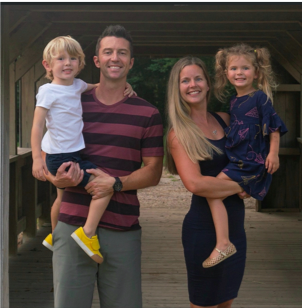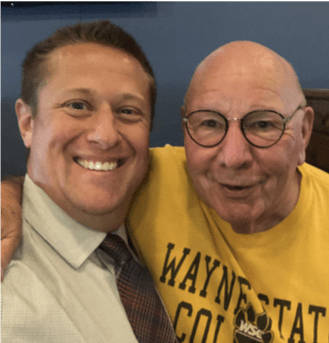By Tom Whisinnand, 2019 Grand Prize Award Winner
In my classroom, I have these posters prominently displayed. Each one features an individual who is responsible for changing our world in some way: Albert Einstein, Jim Henson, and Amelia Earhart as well as other leaders. They all have had an incredible impact on our society, and you might also call them “inspirational.” Not all of their journeys were easy and, in some cases, the magnitude of their impact on the world went unnoticed for a long, long time.
In the 1990s, Apple Computers created an ad campaign entitled, “Think Different.” That campaign celebrated many individuals who did exactly that — they thought differently. One of the commercials in this campaign features some of the same people on the posters in my classroom, celebrating their persistence to change the world.
Is There a Link Between Inspiration and Idealism?
So, just what is it that caused these people to continue to “Think Different”? What caused them to persevere through tough times and hardships? How did they maintain their drive when obstacle after obstacle seemed to appear in their way? I have started to think, perhaps each of these individuals was an idealist. They never lost sight of the vision they initially had. They allowed their ideals to guide them instead of being weighed down by the practical limitations of their situations.
As I considered the link between idealism and inspiration, I wondered if the people who I consider inspirational in my community are also idealists. I decided to check in with a few people who I feel are successful to see if they would describe themselves as idealists.
Three People in My Life Who Think Different

The first person I checked in with, Tim McGee, is a successful real estate agent in Omaha, Nebraska. Tim was quick to identify himself as an idealist. From an early age, Tim has not wavered from reaching his goals. He was constantly striving to reach whatever benchmark of success he determined to be next in his life. Even today, he doesn’t let one setback determine his outlook on the next goal.

Next, I spoke with a long-time mentor and friend, Dr. Dennis Lichty, from Wayne State College. Dr. Lichty was a huge inspiration to me when I was completing my undergraduate degree, constantly modeling what it looked like to be a caring teacher.
Dr. Lichty wasted no time identifying himself as an idealist. In the many years he spent in the classroom and doing work for the Nebraska Education Association, he would always wake up believing that “today is going to be better than yesterday.” And each day Dr. Lichty’s students demonstrated that his idealism was not unfounded.

Finally, I asked the amazing counselor at Reagan Elementary about the connection between inspiration and idealism. Her name is Kaleigh Paben, and have I mentioned that she is AMAZING? Kaleigh is always positive and, even when she is dealing with some really tough student issues, she remains calm.
Like the two individuals before her, Kaleigh wasted no time in identifying as an idealist. She expressed the idea that humans are innately good and that being an educator allows us a front row seat to see just how people develop into better versions of themselves.
Become an Inspiration
Here is my takeaway from the conversations I’ve had about idealism and inspiration: As educators, we are familiar with some sort of idealism. At the beginning of the year we seem to be comfortable with clearly communicating the ideals of expected classroom behavior to our students. We also often come into a new school year filled with idealistic views of how wonderful that year will be. We look at each of our students through idealistic lenses and believe that they are capable of anything. We feel like a real inspiration to our students.
Somehow, about halfway through the year, we seem to lose that idealistic view, and the many practicalities of running a classroom or school push away the idealism that once thrived within us. We forget how awesome it is to be a teacher. We forget that we, as Kaleigh said, get a front row seat to see just how people develop into their best selves.
As educators, we must not let setbacks deter us from following our ideals. We must, as Tim does, keep looking for the next opportunity to demonstrate just how strongly we believe in ourselves. Imagine if the people on my classroom posters hadn’t let their ideals drive them. Our world would not be the same.
So, please “Think Different.” Let your ideals come through in your classroom and school. Follow those ideals with all you are. There will be disappointments and let downs along the way, but keep pursuing the ideals that brought you into education. I believe that by chasing your ideals and seeing the potential in others, YOU become an inspiration.